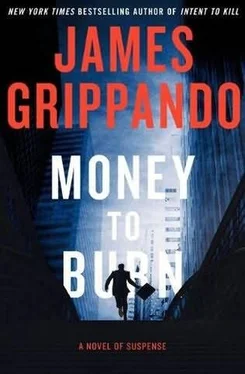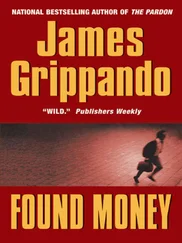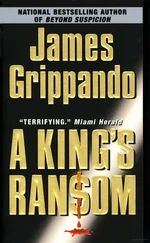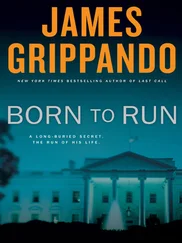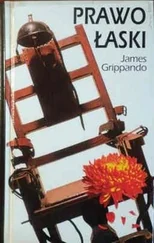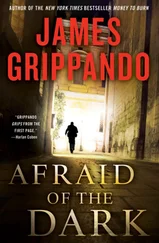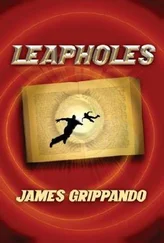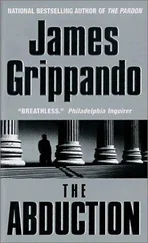“Sorry, but if you can’t tell me why McVee wanted Ivy dead, maybe Kevin and I can help the FBI figure it out.”
I finished dialing, and Kevin’s line was ringing. Olivia continued pleading.
“Don’t you understand? The FBI couldn’t protect Ivy from Kyle McVee. They can’t protect you, me, or anyone else from a man like him. That’s why she ran.”
The call went to Kevin’s voice mail. I hung up, immediately hit redial, and as the line starting ringing again, I tightened my stare on Olivia.
“Why did McVee want Ivy dead?” I asked her.
“I told you, I don’t know.”
“You told me there were things about Ivy that I was better off not knowing. That’s not the same thing.”
“That’s exactly what Ivy told me. Can’t you see she’s protecting us?”
“Can’t you see the game has changed? I’m not willing to live the rest of my life the way she’s been living hers.”
“If McVee finds out you’re helping the FBI, you won’t have to worry about living, period.
The ringing continued, but not even her desperate tone could make me hang up and hide out in a motel room while Kyle McVee framed yours truly for crimes that would bring down me, my firm, and maybe all of Wall Street with us.
Olivia lowered her head into her hands.
On the fifth ring, Kevin answered his cell.
“Kevin, it’s me,” I said.
“Please, don’t,” said Olivia.
I looked away and told my brother everything I wanted the FBI to know.
KYLE MCVEE ARRIVED EARLY TO THE OFFICE FOR AN EIGHT A.M. meeting. The Midtown headquarters of Ploutus Investments occupied the top four floors of a Third Avenue skyscraper, the highest floor being off limits to anyone but McVee and his closest confidantes.
The penthouse level had just two private offices. One was McVee’s. The other had belonged to his son Marcus, untouched since his death, a de facto vault for thirty million dollars’ worth of original artwork by Jasper Johns, Andy Warhol, and other masters whom Marcus had collected over the years. Art had been his final passion in life. Before that, wine had been his thing, and before that, a collection of classic cars. Marcus never went into anything half baked, and that passion was his trademark. In the hallway between the two offices was a photograph of him at base camp on Mount Everest. In his first attempt he’d managed to scale the hard blue ice of Lhotse Face and climb to Camp III at 23,500 feet, where weather forced his team back. Few people doubted that he would someday get beyond Camp IV and on up to the top at 29,028 feet. Even fewer doubted that he would soon be at the top of Ploutus Investments.
Marcus’ involvement in the business went against a certain logic. McVee had essentially worked through Marcus’ childhood, so busy in the world of Wall Street that he barely noticed his son. As an adult, Marcus would have had every right to disown his old man. But the opposite had occurred.
Three months after Marcus’ graduation from college, McVee and his wife had traveled to Bermuda for their twenty-fourth wedding anniversary. A business commitment forced McVee to fly back to New York for a day, which turned into two. When he returned to Bermuda, he found his wife in the hotel room beneath a cool white sheet, an empty bottle of Valium beside her in the bed. Her death made him recall the special things he had loved about the young bride he had married-and regret how little he knew about the seriously depressed empty nester she had become. After the funeral, he started to see the best of Evelyn in their son Marcus. Not just the dazzling intelligence but the bursts of awe-inspiring creativity, the way he devoured things that interested him. McVee reached out to his son, and his son reached back. For nearly ten years they were an inseparable team that not only grew the business but sat right behind home plate in Yankee Stadium together. By his thirtieth birthday, Marcus McVee had become everything a father could want in a son-and more. The “more” part was the problem.
At various times in his life, Marcus-like his mother-had been treated for anxiety and depression.
“I have good news,” said McVee, shaking off the constant thought of his son. “Saxton Silvers will file for bankruptcy just as soon as the courthouse doors open today.”
McVee was standing at the window, the morning sun throwing a zebralike pattern across the room as it shone through the venetian blinds. An English solicitor named Graves was seated on the silk-covered couch, listening. He represented a Kuwaiti multibillionaire whom McVee had never met in person. It was a rare occasion that a client was allowed in the penthouse. This was one of them.
“The sheikh will be very pleased, I’m sure,” said Graves. “What will the final numbers look like?”
McVee stood at the window, casting his gaze across Third Avenue toward the Lipstick Building, a thirty-four-story office tower that, to some, resembled a tube of lipstick. The seventeenth floor there was the center of operations for the king of hedge-fund managers.
“A hell of a lot more impressive than the twelve percent Madoff gets you.”
“Bernie’s been very good to us.”
“Unfortunately, Ponzi schemes are illegal.”
“You don’t know he’s running a scheme.”
McVee scoffed. “Ever seen the man’s golf scores? My Palm Beach caddy told me Madoff didn’t play for a year, then he came out and claimed to shoot an eighty-four-one shot worse than the last time he picked up a club, and dead-on his handicap since 1998: twelve. That’s an interesting number, considering his clients have been earning twelve percent returns through two decades of booms, busts, bubbles, bears, and bulls. Even the SEC knows it’s a Ponzi scheme. He’s one of many.”
“Are you telling me this is a Ponzi scheme?”
McVee smiled thinly. “No. That’s the beauty of it. There’s nothing illegal about credit-default swaps.”
“And you’re sure no one will know how much we make?”
“No chance. We made your purchases through a web of derivative instruments that no one can unravel.”
“And the sellers can pay?”
“We’re talking about the biggest insurance companies in the world. All A-plus-plus ratings. Nothing to worry about.”
McVee handed him a summary of the instruments, the cost basis for each, the expected ten-figure payoff-and, most important, the hefty fee payable to Ploutus Investments. Graves inspected it, obviously pleased.
“You’re brilliant,” said Graves.
“I know.”
True, McVee was never modest, but in this case he was really in no position to share the credit for a scheme that had been conceived aboard a sailboat on Lake Como six months earlier. The essence of the plan-bringing down an overleveraged Wall Street investment bank through short selling and rumors on FNN, then cashing in on credit default swaps-had been the brainchild of McVee and one very smart lawyer. A mob lawyer. To be a Ploutus client, all it took was money. Lots of it. From any source. And the deep desire to make more of it.
“Who’s next?” asked Graves. “Lehman? Merrill?”
Another strike was not out of the question. It had indeed been McVee’s decision to target Saxton Silvers, but in the subprime insanity, other firms had made themselves equally vulnerable, borrowing as much as thirty or forty dollars for every dollar of capital they held in reserve, and then using it to purchase toxic NINA mortgages.
“We’ll see,” said McVee. “They can all come down.”
“If that’s the case, I’m curious: Why did you start with Saxton Silvers?”
“I had my reasons.”
“Cantella?”
“Nothing to do with Cantella.”
“I don’t believe you.”
Читать дальше
